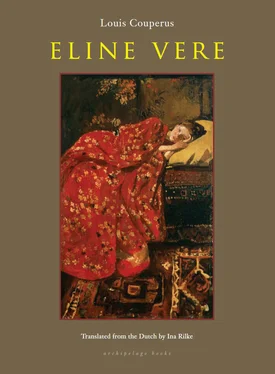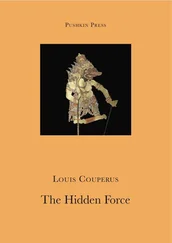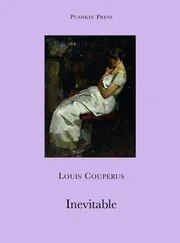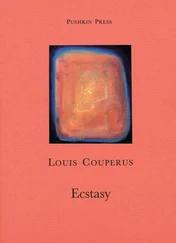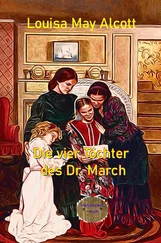‘Oh, Marie, you would have made Otto such a good wife!’ she had said, and she could still hear Marie’s stammered reply:
‘Who, me?’
Now she wondered whether she had caused Marie pain with those words. But she consoled herself with the thought that her impression might be quite wrong, that she had merely imagined Marie to be affected in her demeanour.
For Otto the year had passed in sombre, oppressive dejection. After Eline died there had been unpleasant rumours; she was known to have been ill, of course, but the suddenness of her death had given rise to much whispered speculation as to its cause. This had not escaped Otto, who plunged into renewed grief over his loss of Eline. He looked stricken and almost old, and when Frédérique tried to cheer him up, telling him it wouldn’t do to submerge himself entirely in his gloom, he protested gently with the same words he had once used to reassure Suzanne at De Horze: a man’s heart does not break as easily as you think; men have work to do, business to attend to, they do not ponder a lost love for the rest of their days.
Back then, at De Horze, he had not meant what he said. But lately it had seemed to him that there might be a measure of truth in those words after all. The heaviness in his heart seemed less leaden than it used to be; it was more like a lingering soreness from past hurt and sorrow. He had pangs of conscience whenever he felt his spirits lifting, and would vow to dedicate himself entirely to his grief and to the memory of Eline. But he did not reckon with the fact that time, at once cruel and kind, healed wounds, and that the wound he had come to prize would at length be no more than a scar.
. .
And now, in midsummer, strolling in Paul and Freddie’s garden with Marie at his side, he felt happy in spite of himself. He had asked her to marry him, which had initially thrown her into confusion and subsequently made her weep, whereupon he had begged her not to turn him away simply because he had previously given his heart to another. He had grown to love her deeply, he loved her for her candid simplicity and her sweet, affectionate nature, in which he found solace — oh, he would not deny it, his love for her was utterly egotistic, but she was not to scorn him for that, since he had suffered so much for that other love. As for Marie, she had no desire to refuse him. Her heart brimmed over with infinite compassion; her tears were not for herself, they were tears of joy that he had come to her at last, not tears of frustration at his mention of the past, they were for him alone, for the suffering he had gone through.
So she accepted, moist-eyed, and pressed a light kiss on his brow. He was unaware that she had always loved him, unaware of how much she, too, had suffered during his courtship of Eline. He had yet to perceive the depth of her love for him, he saw only the depth of her pity, but that alone was like a soothing balm to his soul.
Through the dense, spreading bushes glimmered the villa, and seated between the columns on the porch, in the light shining from inside, was an animated gathering, for Paul and Freddie had invited more friends to their abode: Georges and Lili with their two small children, and Etienne, boisterous and youthful as ever.
Otto and Marie made their way back slowly, lingering along the flowerbeds. All around were rose bushes in full bloom, suffusing the freshness of evening with their sultry fragrance. Beyond, on the porch, Etienne appeared to be teasing poor Lili, for they could hear her cries of indignation followed by peals of laughter from the others.
Marie hung back, as though embarrassed by the joy welling up inside her; then she stooped to shake the stems of a few overblown roses and watch their petals flutter down to the ground.
‘Come,’ he murmured. ‘Let’s go and surprise them with our good news.’
And as he led her by the hand he felt he could breathe again; he had a new sense of energy, even of rebirth, for the consoling passage of time had not only effaced his sorrow, it seemed to have rekindled his lust for life.
AFTER WORDBY PAUL BINDING
Almost halfway through Eline Vere we find its eponymous heroine in a state of conscious happiness. Eline, whose life has hitherto centred round the entertainments of high society in The Hague, is staying at De Horze in Gelderland, the country property of the family into which she has agreed to marry. The more she sees of her betrothed, Otto van Erlevoort, the more she appreciates his kindly, virtuous character. Herself highly strung and only too frequently dissatisfied, she has found deep contentment in surrendering to the slow rhythms of the rural summer. These have enabled her to get on with members of the large Van Erlevoort family so well that they are now obviously fond of her — even Otto’s sister Frédérique, who has never much cared for her. Eline is quite aware that she has significantly changed:
During moments of solitary reflection on her new selfhood, tears welled up in her eyes in gratitude for all the goodness that she had received, and her only wish was that time would not fly, but stand still instead, so that the present would last for ever. Beyond that she desired nothing, and a sense of infinite rest and blissful, blue tranquility emanated from her being.
Yet the God to whom she prays for this stasis does not answer her prayer, for time by its very nature cannot stand still. And moving and even sympathetic though we may find Eline’s thoughts here, we can also detect in them signs of the pernicious weakness that will destroy her. Her hopes are unrealistic, and fear plays too great a part in them; indeed, they amount to a desperate desire to have subtracted from existence anything demanding or painful. They are also self-centred; in this respect Eline’s ‘new selfhood’ differs little, if at all, from her former one. Does her fiancé have his rightful part in these wishes of hers for the future to be cancelled?
When Eline returns from De Horze to her sister and brother-in-law’s house in The Hague, she finds that her older cousin, Vincent, is in temporary residence. Vincent has led a rackety life, which has taken its toll on him both physically and financially (he endlessly cadges money). Eline’s sister Betsy — practical, conventional, insensitive — loathes him, but on Eline he exerts a curious fascination, particularly as the Gelderland days recede, and the all-too-familiar tedium of her life in The Hague engulfs her anew. Vincent reminds Eline of the father she so loved and revered, a failed artist who could never find the energy to complete one of his ambitious canvases. Indeed, for all his dabbling in doubtful commercial enterprises, Vincent, with his collection of bric-a-brac, could himself be called a failed artist, and this is how he sees himself. A man more unlike Otto van Erlevoort than this seedy, yet somehow magnetic, individual could scarcely be imagined, and in fact we readers know that Otto, unlike the other more impressionable young men in his social circle, actually despises him: ‘But Otto, with unselfconscious confidence in his own health and strength, looked down on Vincent for the poisonous charm he emanated to gullible associates.’ But Eline, much to her sister’s irritation, takes to having long, lazy, philosophical conversations with him:
‘So you believe that everything is preordained, and that when I think I am doing something out of my own free will I am really only doing it because. .?’
‘You only think it’s your free will, but your will is nothing other than the outcome of hundreds and thousands of previous so-called occurrences. Yes indeed, that is what I believe.’
[. .]
‘You believe, for instance, that if I marry Otto all I’m doing is following a preordained path?’
Читать дальше
